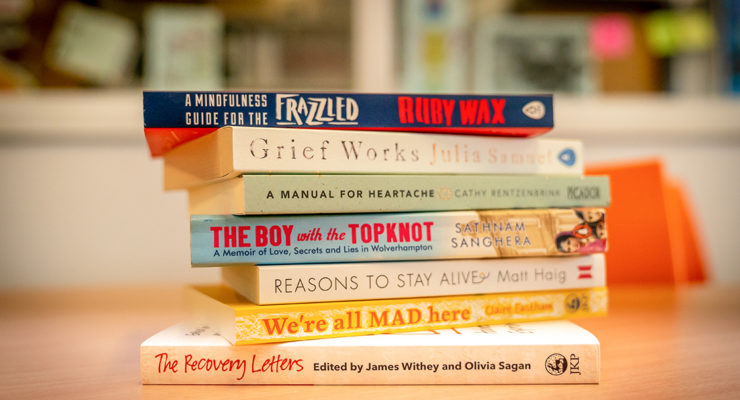Supporting yours and your family’s mental health during the summer holidays
The 6 week summer holidays are a time many families look forward to longer days, no school runs, and the chance to relax. But for many parents, the lack of routine, constant demands, and pressure to make the most of every day can take a toll.
If you’re juggling work and childcare, it can feel especially overwhelming to meet everyone’s needs while also looking after your own. Whether you’re working from home, in the office, or somewhere in between, your mental well-being matters too.
Here’s how to create a more balanced, connected, and calm summer holiday for both you and your children.
It’s Okay If It’s Not All Sunshine and Smiles
Let’s start with this: you don’t have to love every minute. The summer holidays can bring joy and stress in equal measure. If you’re managing work while trying to entertain or supervise your kids, it’s natural to feel stretched thin. Some days will feel messy and that’s completely normal.
Keep a Gentle Routine
Children thrive on predictability, and so do parents. A loose routine helps ease transitions, prevent boredom, and reduce daily decision fatigue.
Tips for working parents:
- Create a visual schedule for kids so they know what to expect
- Set boundaries for work blocks and “do not disturb” times (when possible)
- Plan independent activities or screen time during important work moments if you need to
- Tag-team with a partner, family member, or trusted sitter if available
Even a simple morning and evening rhythm can help everyone feel more grounded.
Support Children Through Caregiver Transitions
If your child is spending time with different caregivers like grandparents, childminders, or family friends it can take a toll on their sense of stability.
Here’s how to make those transitions easier:
- Prepare them in advance: Talk about who will be caring for them and what the day will look like
- Use familiarity: Pack familiar items e.g. Toys, cuddly/comforter
- Keep routines consistent: Try to keep meal and nap times similar, even in different homes
- Validate emotions: It’s okay if they’re clingy, tearful, or unsettled. Let them know it’s normal to need time to adjust
- Check in afterward: Ask how it went and listen without rushing to fix anything
Transitions can be tough but with reassurance and consistency, children learn to cope with change.

Focus on Connection, Not Perfection
If you feel guilty for being busy or distracted during the day, remember this: it’s not about quantity it’s about quality. A short burst of undivided attention can go a long way.
Ideas for quick connection:
- Share breakfast together before the day begins
- Do a “brain break” dance party between meetings
- Spend 15–20 tech-free minutes together in the evening
Screen Time: Balance, Not Battle
Screens often become a lifeline during summer especially when you’re trying to get work done. That’s okay. Rather than feeling guilty, focus on balancing screen time with other kinds of activity when possible.
Ideas to support healthy screen habits:
- Use timers or agreed-upon breaks
- Offer choices between screen and non-screen play
- Save new shows or games for times when you really need focused work time
The CBeebies parenting website has some great activities for screen free time.
Here is some information how to help teens manage their screen time.
Here are some ways to make sure your children stay safe when they are online over the summer
Spend Time Outside (When You Can)
Being outside boosts everyone’s mood even a short trip to the park after work can help reset your nervous system.
Consider:
- Working from the garden while kids play (if possible)
- Doing your lunch break at a local park
- Planning weekend nature time to decompress together
Nature doesn’t have to be far away just a patch of sky, a few trees, or some fresh air can make a difference.
Keep It Simple
As a working parent, you don’t have time to plan a big exciting activity every day. And you don’t need to. Kids don’t need perfection they need presence.
Simple ideas:
- Craft kits, puzzles, and colouring
- Movie afternoons with homemade popcorn
- Playdates or activity swaps with other parents to share the load
Give yourself permission to do what’s manageable, not what looks ideal.
Kids travel for free on buses this summer, even a bus ride and a walk somewhere new can be a great day out. Free bus travel for children this summer | North Somerset Life

Talk Openly About Feelings
Children may not always have the words to say they’re feeling overwhelmed, bored, or anxious but those feelings can show up in behaviour. Let them know it’s okay to have big emotions and model healthy ways to talk about your own.
You might say:
- “I’m feeling a bit stressed today, but taking a deep breath helps.”
- “It’s okay to miss your friends. Want to call one after lunch?”
These conversations build emotional resilience for both of you.
Be Kind to Yourself
You are doing a lot. If the house is messy, the screen time is up, or dinner is late you’re not failing, you’re human. Let go of perfection, celebrate small wins and remind yourself: your best is enough.
Summer holidays can be both rewarding and demanding especially when work, childcare changes, and emotional needs all collide. Supporting your family’s mental health starts with being honest about your limits, creating manageable routines, and showing up with compassion for your kids and for yourself. Make time for small things that recharge you:
- A walk alone after dinner
- A phone call with a friend
- Turning off notifications during your downtime
Working parents may brush off their own exhaustion or overwhelm but it’s just as important to care for your mental health as your child’s. If things feel too heavy, reach out for support, here is a list of local and national support
If you’re finding things tough, don’t hesitate to reach out to a GP, therapist, or support network.
You’re not alone, and help is always available.



